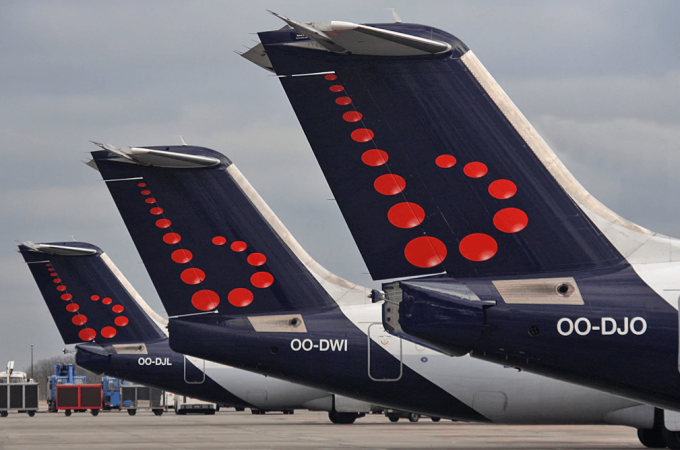Port privatisation off, but Santos STS10 terminal concession will be up for grabs
Brazil’s Ministry for Ports and Airports has decided to expand the container handling capacity of ...
GM: RAISING THE ROOF GGM: IN FULL THROTTLE GZIM: MAERSK BOOST KNIN: READ-ACROSSMAERSK: NOT ENOUGHMAERSK: GUIDANCE UPGRADEZIM: ROLLERCOASTERCAT: HEAVY DUTYMAERSK: CATCHING UP PG: DESTOCKING PATTERNSPG: HEALTH CHECKWTC: THE FALLGXO: DEFENSIVE FWRD: RALLYING ON TAKEOVER TALKODFL: STEADY YIELDVW: NEW MODEL NEEDEDWTC: TAKING PROFIT
GM: RAISING THE ROOF GGM: IN FULL THROTTLE GZIM: MAERSK BOOST KNIN: READ-ACROSSMAERSK: NOT ENOUGHMAERSK: GUIDANCE UPGRADEZIM: ROLLERCOASTERCAT: HEAVY DUTYMAERSK: CATCHING UP PG: DESTOCKING PATTERNSPG: HEALTH CHECKWTC: THE FALLGXO: DEFENSIVE FWRD: RALLYING ON TAKEOVER TALKODFL: STEADY YIELDVW: NEW MODEL NEEDEDWTC: TAKING PROFIT

Brussels Airlines Cargo has become the latest Lufthansa subsidiary to see its cargo capacity marketed by the parent company, just over a year after the German carrier bought the remaining 55% stake.
In February, 100 Belgian companies urged Lufthansa to allow Brussels Airlines to retain its identity and not be merged into Eurowings. As with Swiss, the other then-troubled carrier acquired by Lufthansa, there was enormous support locally for the ‘national’ airline, amid fears it could be lost – along with jobs.
Business development manager at Brussels Reinout Puissant told The Loadstar the decision came as “no surprise”.
From September, Lufthansa Cargo will sell belly capacity on Brussels’ passenger flights, alongside that of Austrian Airlines, Eurowings, Lufthansa and Sun Express.
Mr Puissant said the move was an “obvious” next step, adding the time was “ripe” to consolidate cargo sales after a decade of close cooperation.
“It brings the best of both worlds together, with us bringing our extensive Africa expertise and with the power of the market leader, Lufthansa Cargo,” said Mr Puissant.
“The networks of both Brussels Airlines and Lufthansa complement each other perfectly and our customers will now have access to the Lufthansa Cargo’s route network.”
Lufthansa’s cargo network covers 300 destinations across 100 countries, and it seems the German carrier’s core interest in Brussels is in its 17 African services.
In a statement, Lufthansa said the network, which includes Dakar, Entebbe and Kinshasa, would be “attractive to its customers”.
Chief commercial officer Alexis von Hoensbroech added: “Brussels Airlines’ African destinations are complementary to our network and thus ideally complement our connections.”
The move leaves Swiss as the only major Lufthansa subsidiary responsible for selling its own cargo capacity.
Concerns of potential job losses at Brussels were quickly quashed by Mr Puissant who sought to reassure the status of the carrier’s employees.
“Obviously, there were some questions about job security, but everybody can stay on board,” he said. “In the new structure we have foreseen functions that will further develop the Brussels cargo hub and build on the initiatives we have taken together with Brussels Airport.”
Mr Puissant said Lufthansa Cargo intended to “leverage and learn from” Brussels’ cooperation with the city’s airport on CEIV certification and development of the gateway’s pharma hub.
Under the marketing agreement, belly capacities of 10 widebody aircraft will be added to Lufthansa’s sales services.
The German flag carrier also operates 17 freighters and uses freighter capacities from its joint venture with DHL Express, Aerologic.
Comment on this article